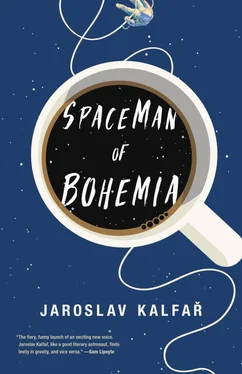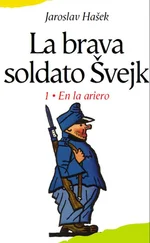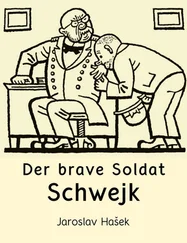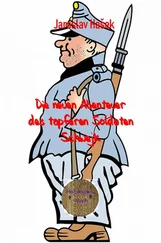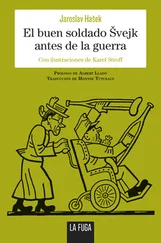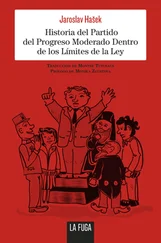Seventy-three days he spends in a castle dungeon, his arms and legs chained, eating bread gray with mold. When he is questioned, the councilmen spit and ask him to recant, but he will not. A man is free, he shoots back. Man is free under God.
The sentence is death.
The executioners have a hard time scaling up the fire—simply put, Hus’s body hesitates to burn. In an attempt to help, an old woman from the audience throws a handful of brushwood on the pile, blows a little at the impotent flames. “Sancta simplicitas!” Hus cries out from the stake as his feet redden. Holy Simplicity . At forty-four degrees Celsius, the proteins within the series of cells known as Jan Hus begin to break down. As the temperature rises, the initial layers of skin peel back like those of a kielbasa. The thicker dermal layer shrinks and splits, and a yellow fatty paste leaks out and burns with a low squeal. Muscles become dry and contract. Bone burns stubbornly, though, as if the solid foundation of man were not the soul (nowhere to be seen), but this brittle framework. Here is Jan Hus, and he is dead. A space shuttle will someday carry his name.
The creature has ahold of me once again. I am on the couch; my grandparents are dressed for a funeral. I hold the plate my grandfather has given me, and I eat the chicken and dip bread in the grease, then wet my fingers and pick at the crumbs.
“I’ll stay here,” I say.
Grandpa takes the plate away and picks me up. He squeezes so hard I can feel the food moving through my body. He puts me down on my feet, and Grandma kisses me with lips tasting of lard and alcohol.
The silence in the living room changes during the hours of their absence. I am alone. Šíma is in the yard, sniffing out mice. The clock ticks obediently, mechanical and dead. The steel strings pop one by one and the tram halts suspended in the air for one long second before it begins to fall. I turn the TV on, six o’clock news. Small business grows, the communists are long gone, and we are free to live as we like. Free to travel, free to kiss, free to remain silent as the tram falls down and down until we are free to die. Free to be as we like. My grandparents come home at seven and I sit in the same chair, and I don’t remember how I got here, and I don’t know what I plan to do next—until suddenly I am no longer the sole inhabitant of JanHus1, and I am left sweating and looking upon my visitor.
“Sancta simplicitas!” the creature says. “You are what I’m looking for.”
“SKINNY HUMAN,” THE CREATURE said. I ignored it and stared at the empty whiskey bottle.
The words didn’t travel through my ear canal or vibrate through my eardrum, didn’t fill my skull as a human voice would. The sound was a dull ache, a mild brain freeze.
I turned my back and pushed forward. Pressure around my temples forced green and blue stains into my vision. Had I been using my legs, I surely would’ve stumbled from wall to wall, feeling my way around like a drunkard or a blind man. But the lack of gravity allowed for flawless transportation, and without looking back, without acknowledging the scratching and breathing behind me, I made my way back to the Lounge and strapped myself down into the Flat chair. I watched, transfixed, as whiskey slithered up and down my cosmic glass, a shape engineered to resemble spaceship fuel tanks: sharp edge around the bottom, round on top, almost, just almost resembling the human heart. The liquid traveled inside the container in undisciplined blotches until I sucked it out and released it into my bloodstream.
The liquor burn fueled my anger, a spinal tap—I was a slave unshackled, bent to seize the reins of JanHus1, this magnificent steel beast, and plunge it into the planet that had spawned me. The labor, the isolation, the physical deterioration, all endured so that my wife could simply disappear. I plotted an apocalypse: somehow I would turn JanHus1 into a sentient meteorite, turn it around, and drive it directly into the Earth. Somehow I would cut off the influence of physics over the shuttle, crash it through the atmosphere, and set the planet ablaze. My charred body would come back to life just so I could seek out Lenka. I would sit her down for a cup of coffee amid the end of civilization and ask her what it had felt like when she woke up one morning knowing she wanted out, whatever that meant.
Love could turn us all into war criminals. The Flat came to life and showed three email notifications, one of which was a reminder that my live blogging Q&A session with selected Earthlings was to begin in an hour. The feeds of my conversations with everyday citizens: children wearing T-shirts with my likeness silk-screened on them, women who couldn’t stop referring to my wife as “so lucky,” people who asked the simple questions, as in, was I allowed to have a beer, and how did I cope without a shower? Video technicians smoothed out my space-worn facial features, so painfully emphasized by the crisp image of high definition, by applying airbrushes and filters, making me look fresh and tight-skinned, because what is a hero who loses his looks really worth?
Not doing it, I replied to Petr’s reminder.
“Skinny human, you have already acknowledged my existence,” the creature said. “It is unreasonable for you to ignore it once again.”
I let the whiskey bottle hover, a gesture much less satisfying than smashing it against the wall.
“I am sorry about your female partner. For what it is worth, the sociocultural rituals of your society seem to be in conflict with biological reality.”
I looked up at it. The voice was high-pitched, childlike, yet a deep growl accompanied every word, like a malfunctioning radio. Its teeth were frozen in a cramped grin, and all of its eyes blinked at the same time.
“What was that?”
“Pardon me?”
“What were you doing to me? I felt it.”
“I am a traveler,” it said.
“Dr. Kuřák is going to love this,” I said. “This plays exactly into his expectation. Reliving traumas, personification of fears, that son of a bitch.”
“How would you respond?” it said.
“I wouldn’t.”
“Yes. Your mind is riddled with nonanswers. River dams that trap the wild joy of water for the sake of practicality. A poet human said that.”
“I’m gassy. Exhausted.”
“It is of utmost importance that we speak to each other.”
“I need to sleep you off. Like a stomachache.”
I floated off the chair, down Corridors 3, 2, and 1, back into my personal chamber, where the Womb spacebag awaited. Many Czech children on Earth had their own replica in their rooms, only horizontal, resting safely atop their beds. I glanced behind me a few times to see the creature follow, all eight of its legs smoothly rowing back and forth, back and forth, like the paddles of an ancient ship on its way to war. It seemed to be able to adjust its position and altitude regardless of the vacuum, as if it weren’t subject to physics. For a moment, I observed its anatomy in detail, pondered the size of the joints set along the legs, the roundness of the belly, the dark irises of the eyes all focused in the same direction—could they do otherwise, did the nervous system provide individual control over each? The eyes were directed toward me, always toward me, and I shook my head and pleaded with myself to cease this study of an imaginary being.
Dr. Kuřák was an expert on hallucinations—in fact, he had admitted that the concept made him giddy. He was very careful to explain the distinction between hallucinations—a perception in the absence of stimuli that nevertheless holds the qualities of real perception—and delusional perceptions in which a correctly sensed stimulus, or, one could say, a real thing, is given some additional, twisted significance. For delusional perceptions, Dr. Kuřák chuckled, see Kafka. While Freudian theories proposed that hallucinations were the manifestation of subconscious wishes, perversions, even self-flagellation, newer waves of less ego-obsessed psychologists suggested that hallucinations had to do with metacognitive abilities, or “knowing about knowing.” Dr. Kuřák was a bona fide Freudian, thus insisting that should a crisis occur during my time on JanHus1, the entire mythos of my childhood would come pouring out, filling the darkened halls of the ship with visions of horror, fear, pleasure, the naked body of my mother and erect phallus of my father, dreams of misdirected violence, and yes, perhaps even a “friend.” Whatever the theory, my predicament was the same. Kuřák’s predictions of madness seemed to be coming true.
Читать дальше
